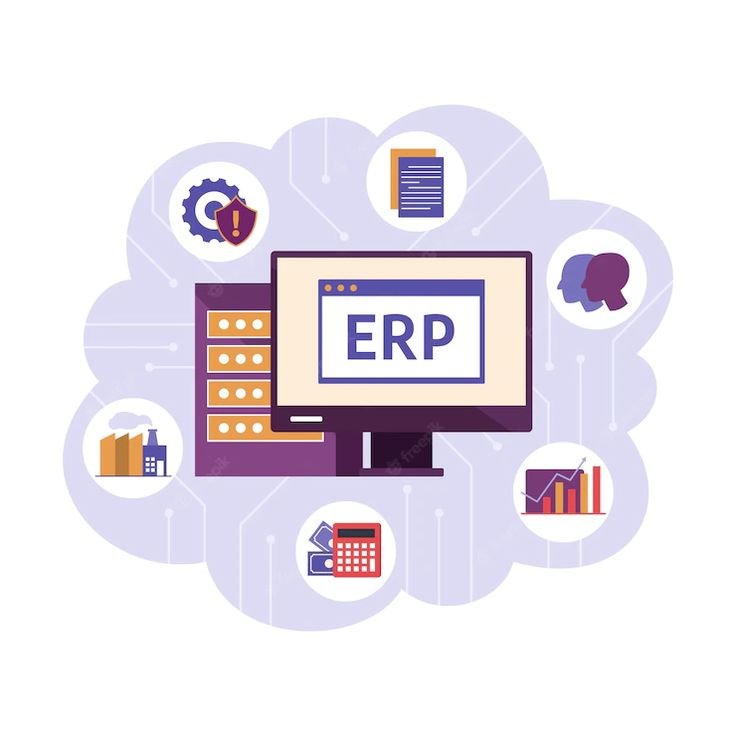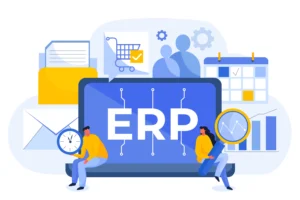In the ever-evolving world of manufacturing, maintaining an efficient supply chain is vital for ensuring consistent product output, timely deliveries, and optimized resource utilization. Enterprise Resource Planning (ERP) systems have become an essential tool in the manufacturing industry, helping businesses streamline their supply chain processes and eliminate inefficiencies. ERP systems allow manufacturers to gain better visibility into their operations, automate key tasks, and improve communication across departments. Let’s explore how ERP solutions are transforming supply chain management in manufacturing.
How ERP Enhances Supply Chain Efficiency

Real-Time Inventory Management One of the most crucial components of a manufacturing supply chain is inventory management. An ERP system enables real-time tracking of inventory levels, providing up-to-date information on raw materials, finished products, and stock levels. By monitoring inventory in real time, manufacturers can avoid stockouts and overproduction, ensuring that resources are allocated efficiently.
Improved Supplier Relationship Management Managing supplier relationships is a key aspect of an efficient supply chain. With ERP, manufacturers can automate purchase orders, track supplier performance, and ensure timely delivery of materials. By integrating supplier management into a unified ERP platform, manufacturers can reduce procurement costs and build stronger, more reliable relationships with their suppliers.
Optimized Production Planning ERP systems provide manufacturers with tools to create detailed production schedules, monitor progress, and allocate resources effectively. By having a clear overview of production lines and resource availability, manufacturers can reduce bottlenecks, improve capacity utilization, and ensure that production runs smoothly. This level of control over production processes allows for greater agility in responding to customer demands and market fluctuations.
Efficient Order Fulfillment Order fulfillment can be a complex and time-sensitive process, especially for manufacturers dealing with multiple orders and tight deadlines. ERP systems integrate order management with inventory, production, and shipping functions, allowing manufacturers to process orders faster and with greater accuracy. This leads to improved customer satisfaction and fewer delays in product delivery.
Enhanced Demand Forecasting Accurate demand forecasting is essential for ensuring that manufacturing operations run smoothly. With ERP software, manufacturers can leverage historical data and market trends to predict demand more effectively. This enables better planning of production schedules and inventory levels, ensuring that businesses are prepared for fluctuations in demand.
Key Features of ERP in Manufacturing Supply Chain
Supply Chain Visibility: ERP systems provide a centralized platform that gives complete visibility into every aspect of the supply chain, from procurement to production and distribution.
Automation: ERP software automates repetitive and time-consuming tasks such as inventory management, order processing, and billing, freeing up resources to focus on more strategic activities.
Data-Driven Decision-Making: With integrated data analytics and reporting capabilities, ERP systems allow manufacturers to make informed, data-driven decisions that optimize the supply chain.
Integration of Departments: ERP systems connect various departments such as procurement, production, sales, and finance, ensuring that all teams have access to the same data and can collaborate more effectively.
Compliance and Quality Control: Manufacturing companies often need to meet strict regulatory standards and quality control measures. ERP systems streamline compliance by tracking and documenting production processes, ensuring adherence to industry regulations.
Choosing the Right ERP System for Supply Chain Management

To fully leverage the benefits of ERP in your supply chain, it’s essential to choose a solution that meets your unique business needs. Here are some key factors to consider:
Scalability: As your business grows, your ERP system should be able to scale and accommodate increased data and users without compromising performance.
Customization: Look for an ERP solution that can be tailored to suit the specific needs of your manufacturing operations. This ensures that your system aligns with your supply chain processes.
Cloud vs. On-Premises: Cloud-based ERP solutions offer flexibility and accessibility, allowing teams to access data from anywhere. On-premises solutions provide greater control but may require more upfront investment.
Vendor Support: Ensure that your ERP vendor offers strong support and training resources to help your team adopt the system and maximize its potential.
Conclusion
In a competitive manufacturing landscape, efficient supply chain management can be the difference between success and stagnation. ERP systems provide manufacturers with the tools they need to streamline operations, improve supplier relationships, and make informed decisions that drive growth. Whether you’re looking to improve inventory management, optimize production, or enhance customer satisfaction, implementing an ERP system can transform your supply chain and take your manufacturing business to new heights.
Are you ready to revolutionize your manufacturing supply chain with ERP? Start exploring the possibilities today.




